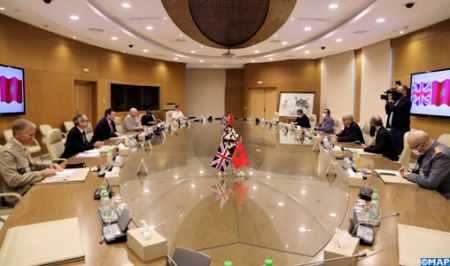Rabat hosted this February 17-18 the World Pre-Forum on Human Rights as a prelude to the third World Forum on Human Rights (WFRH) will take place in Argentina in March 2023.
The global pre-forum was organized by the Moroccan Human Rights Council (CNDH) and the International Center for the Promotion of Human Rights (CIPDH-UNESCO), which leads the organization of the Third World Forum on Human Rights and coordinates its Executive Secretariat.
CNDH President Amina Bouayach denounced in an opening address the so-called traditional democracies which use human rights as weapons in obtuse political games, betraying their very essence.
“We have chosen to dialogue in an event with high moral symbolism, at a time when some so-called traditional democracies use human rights as weapons in obtuse political games, betraying their very essence,” deplored Bouayach.
The World Pre-Forum on Human Rights aims to renew the commitment to common values in the face of rapid changes that the world is going through, she said, stressing that “a permanent monitoring is, indeed, necessary to examine the challenges, define priorities and implement strategies, drawing on the universal to advance the local.”
CNDH president noted, moreover, that this event’s three themes of debate, namely transitional justice and memory, migration, and climate change are themes on which Morocco can boast a solid and unique experience.
The so-called “emerging” countries, she continued, can contribute much to this debate, as demonstrated by the meetings during the preparation of the Global Compact on Migration, or during its adoption in Marrakech, expressing her concern that no Western country has ratified the international convention for the protection of migrants and their families, while “our countries voluntarily submit to the review and universal evaluation.”
For his part, the Argentine Minister of Foreign Affairs, Santiago Cafiero, welcomed the organization in Morocco of this pre-world forum on human rights, hailing the choice of themes selected for this international event.
Speaking in a video address, Cafiero said that the main objective of these debates is to facilitate a frank and transparent dialogue between all States, with the active participation of civil society in order to act effectively in the face of emergencies in the field of human rights, adding that the sessions organized over two days will greatly enrich the debates in Buenos Aires next March.
For her part, Executive Director of the International Center for the Promotion of Human Rights (ICPD)-UNESCO, Fernanda Gil Lozano, pointed out that this pre-forum is an opportunity to shed light on the issues, challenges and prospects related to human rights, at regional and international levels.
In this regard, she emphasized the need to address these issues in a universal language that respects the difference and guarantees the dignity of societies, pleading, in this regard, for concerted efforts between governments, civil society and individuals to strengthen the common commitment to human rights, transitional justice and climate change.
Fernanda Gil Lozano also underlined Morocco’s commitment to climate-related issues, recalling the progress made by the Kingdom in the ranking of the Global Climate Change Performance Index. She welcomed the content of the speech delivered by Princess Lalla Hasnaa at the 27th Conference of the Parties to the United Nations Framework Convention on Climate Change (COP27).
Princess Lalla Hasna is Goodwill Ambassador of the Congo Basin Climate Commission and the Blue Congo Basin Fund.
The experts, university professors and representatives of national and international human rights organizations and several other institutions who took part in the pre-forum discussed challenges and solutions and reflected on current and emerging issues, especially in the wake of the humanist momentum that characterizes post-crisis periods, such as the Covid-19 pandemic.
Few voices have raised to suggest that the age of human rights has come to an end in light of the rise of different forms of xenophobic nationalism, transnational populism, multidimensional security and sectarian crises as well as narrow and closed identity tensions. In this context marked by uncertainties and inequalities that seem endemic, the world continues to witness attempts to question the universality of human rights, and it has even become iterative and perceptible to hear voices cast a shadow over the future of those rights, impacted by the polarization and politicization of debates.
The Pre-forum recommendations and outcome will be presented
during the third WFHR in Argentina in March 2023.



